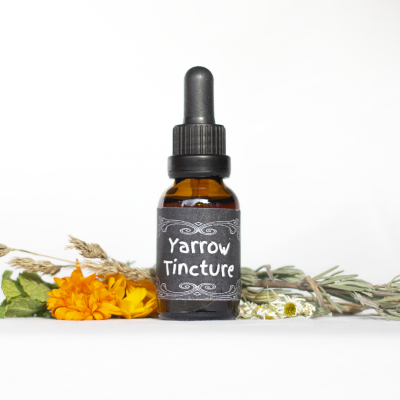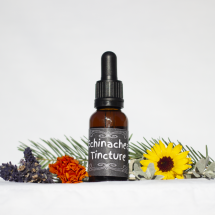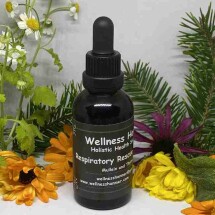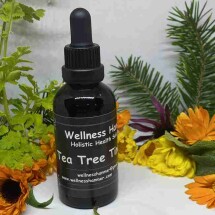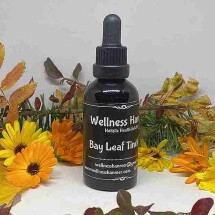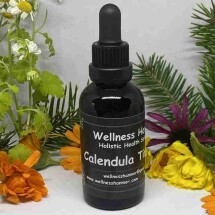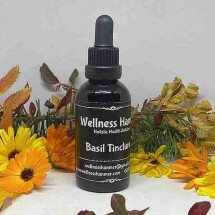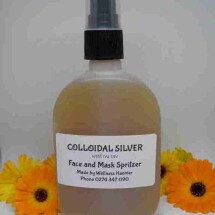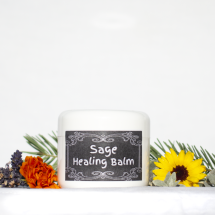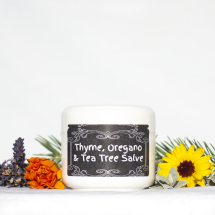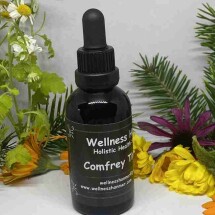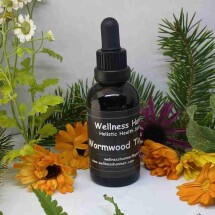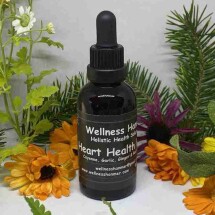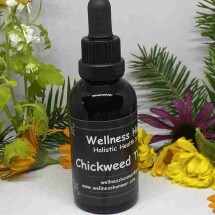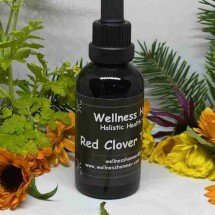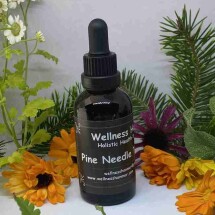Product Information
For thousands of years, Yarrow has been used as a healer of wounds, helping to control haemorrhages and infection. Yarrow flowers are also thought to have a wonderful tonic effect on the gastrointestinal system, thereby easing indigestion, flatulence, and dyspepsia and it acts as a system purifier that rids the body of toxins through the skin and urinary tract. It is used by herbalists to treat high blood pressure and large amounts of fat in the blood. It has helped to stop bleeding of stomach ulcers, haemorrhoids, balance the menstrual flow, relieve dull, achy menstrual pains and for nosebleeds (especially those due to allergies). It has also helped with postpartum bleeding and abnormal flows.
It has been used to improve the appetite and ease and improve certain gastrointestinal conditions. It relieves general cramping and menstrual cramps, as well. Yarrow has been helpful for varicose veins, dysentery, and diarrhoea.
As a diuretic, the herb promotes the release of toxic wastes (including uric acid) through increased urine flow, which is also helpful in cases of many urinary problems.
As a diaphoretic, Yarrow naturally increases the body's temperature, opens up skin pores and stimulates perspiration, increasing the elimination of toxins through the skin. By inducing sweat, it also helps to lower fever, which is useful in treating feverish illnesses, especially colds, flu, and measles.
Yarrow has been used to treat diarrhoea, especially mucous diarrhoea, haemorrhoids and excessive menstruation and bladder conditions, in particular, those related to involuntary urination in children.
Yarrow is thought to be good for cardiovascular health as it lowers blood pressure, helps hypertension and protects against thrombosis after a stroke or heart attack.
As an anti-inflammatory, Yarrow has been used to help ease the discomforts of rheumatism, gout, and arthritis, and to provide relief from headaches and menstrual pain. Some modern research confirms the historical use of Yarrow as a pain reliever for many conditions.
Used for centuries as a haemostatic, an agent that controls or stops the flow of blood. Yarrow has been used internally to control haemorrhaging from the lungs and the bowels, among other applications.
Used externally, this herb has been a reliable remedy for healing wounds and arresting the blood flow from nosebleeds, shaving cuts, etc. Because it is thought to be so effective and quick when used in this manner, it is wise to clean a cut first before applying Yarrow, because it may begin the healing process while the dirt and infection are still within the wound. However, all deep or infected wounds should be treated by a doctor. In recent tests, it has demonstrated antibiotic and antibacterial qualities that appeared to kill many kinds of bacteria found on human skin and destroyed the pain-causing infection. It is also effective against athlete's foot, yeast infections, microbial infections, toothaches, gum infections and boils.
Other internal uses: to help clear blood clots, lung congestion, chronic cystitis and urethritis, mucus discharge of the bladder, nephritis (Bright's disease), smallpox, chicken pox, glandular imbalances, and diabetes. It has been used to treat amenorrhea, colic, Crohn's disease, ulcerative colitis, PMS, indigestion, and heartburn.
Ingredients: Yarrow Flower extracted in 40% Alcohol.
All of our ingredients are Organic, & Responsibly Wildcrafted. No genetically modified organisms (GMO's) are involved. All other products that are distributed by us meet our high-quality standards.
Instructions: Use 6-12 drops in juice, water, under the tongue or as desired. May be taken 3 times daily. Shake well. Store in cool dark place. Keep out of reach of children.
Contraindications: Pregnant or nursing women should not use Yarrow, as it is a uterine stimulant, nor should women with heavy periods or pelvic inflammatory disease. Continued or long-term use of Yarrow may cause skin irritation and/or allergic reactions. If so, discontinue its use. Yarrow may produce photosensitivity. If using Yarrow to treat wounds, be sure to clean the affected area first, as the herb can stop blood flow so quickly that it may seal in dirt or other contaminants. People with gallstones should avoid its use. Yarrow may cause severe allergic skin rashes when applied topically.



